October 22, 2020
AI For Social Good Month: Kick-off
What kind of future are we heading towards when it comes to AI in Asia?
October 22, 2020
What kind of future are we heading towards when it comes to AI in Asia?
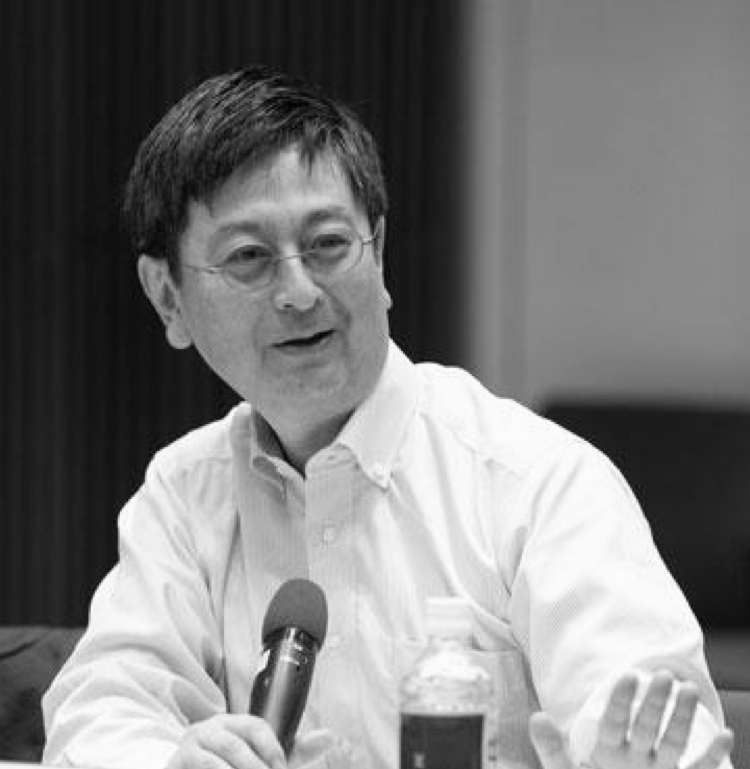
Professor Kokuryo is a Professor at Keio University’s Faculty of Policy Management as well as a Professor at its Graduate School of Media and Governance. He has served as a Vice-President of Keio University since July 4, 2013. Prior to joining Keio University, Professor Kokuryo worked for Nippon Telegraph and Telephone, where he promoted the use of information technologies for corporate users.
Professor Kokuryo has been playing a central role in formulating Japan’s information technology policies. He also works closely with volunteer organizations and was commended by the Minister of Internal Affairs for his distinguished service to the development of regional societies.
Professor Kokuryo holds a bachelor of economics from the University of Tokyo (1982), Master in Business Administration (MBA) from Harvard Business School (1988), and Doctor of Business Administration (DBA) also from Harvard Business School (1992).

Mark Van Hollebeke, Ph.D., is a Principal Ethics Strategist within Microsoft’s Cloud and AI organization. His work centers on addressing the societal impacts of the AI and Mixed Reality products that Microsoft creates. Working directly with product teams, he is a champion of putting people at the heart of our design and finding practical ways to interject ethical considerations into Microsoft products and services.
During nearly 9 years in Microsoft, Mark has worked in a variety of roles, including supporting the Chief Privacy Officer in effectuating privacy governance, supporting privacy professionals in their day-to-day work, and driving education and compliance implementation for Microsoft policy. His focus has always been about broadening existing compliance practices to include ethical considerations and mitigations during product design.
Prior to his role at Microsoft, Mark spent 12 years as a philosophy professor specializing in ethics and pragmatism, including many years teaching business ethics.
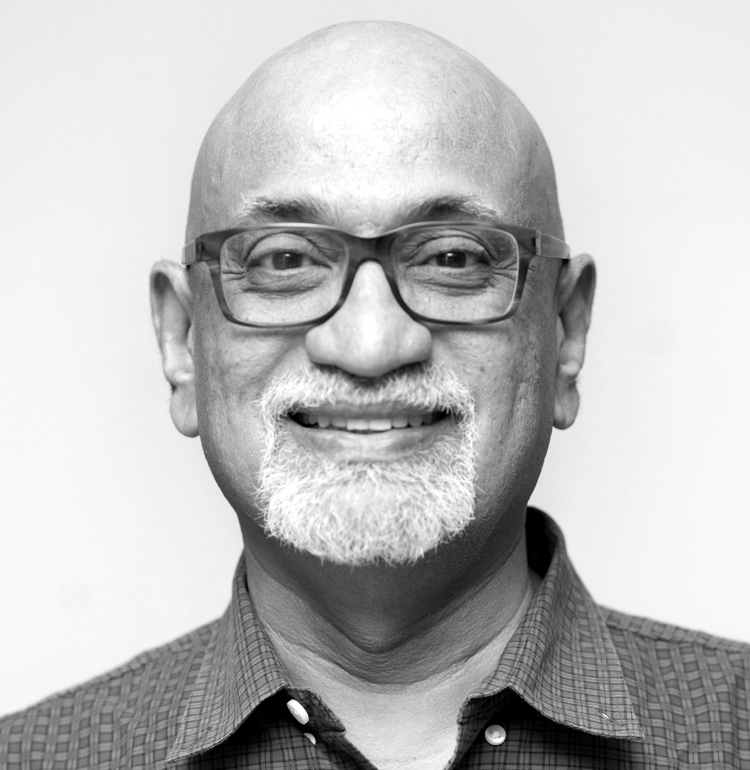
A renowned researcher in Computer Vision and Artificial Intelligence, Dr P. Anandan’s career spans over 30 years in academia and industry in the US and India. He was the Founder and Managing Director of Microsoft Research India, and professor of Computer Science at Yale University. He is a distinguished alumnus of IIT Madras, the University of Massachusetts, and a member of the Board of Governors of IIT Madras.
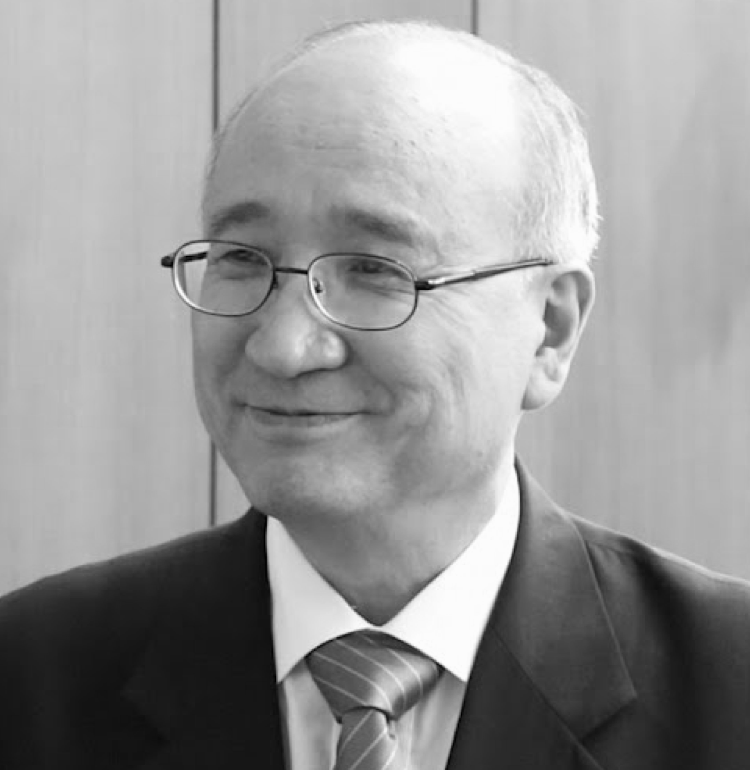
Prof. Dong Sun Park is the Lead Shepherd of the APEC Human Resources Development Working Group (HRDWG), the Chairman of the Institute of APEC Collaborative Education (IACE), and also Professor at Pusan National University.
As a career diplomat, he served as Ambassador of the Republic of Korea to Finland and concurrently to Estonia (2010-2013), Ambassador for International Economic Cooperation at the Ministry of Foreign Affairs and Trade (2009-2010), Ambassador and Deputy Permanent Representative to OECD (2007-2009), and Consul General at Chengdu, China (2004-2007).
Ambassador Park was also assigned to Korean Missions and Embassies in Geneva, Switzerland, Thailand, Kenya, and Greece, covering work relating to international organizations such as the WTO, UN ESCAP, UNEP and OECD, as well as the Greek EU Presidency. He also served as Program Management Officer at UNESCAP. He also held the post of the Principal Secretary for Diplomacy and Protocol to the Chairman of the National Assembly (2003-2004).
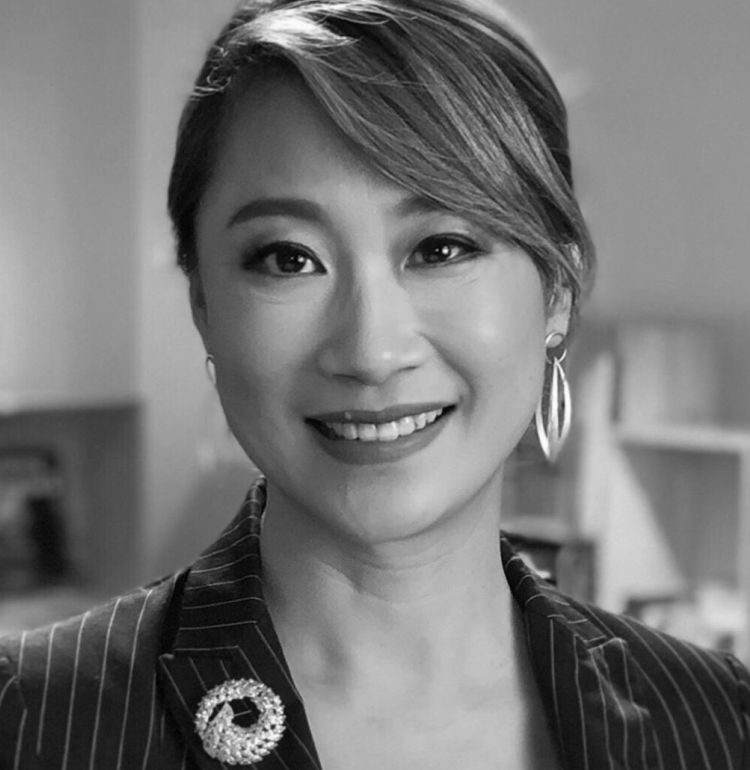
Pascale Fung is a Professor at the Department of Electronic & Computer Engineering and Department of Computer Science & Engineering at The Hong Kong University of Science & Technology (HKUST), and a visiting professor at the Central Academy of Fine Arts in Beijing. She is an elected Fellow of the Institute of Electrical and Electronic Engineers (IEEE) for her “contributions to human-machine interactions”, and an elected Fellow of the International Speech Communication Association for “fundamental contributions to the interdisciplinary area of spoken language human-machine interactions”. She is the Director of HKUST Centre for AI Research (CAiRE), an interdisciplinary research center on top of all four schools at HKUST. She co-founded the Human Language Technology Center (HLTC). She is an affiliated faculty with the Robotics Institute and the Big Data Institute at HKUST. She is the founding chair of the Women Faculty Association at HKUST. She is an expert on the Global Future Council, a think tank for the World Economic Forum. She represents HKUST on Partnership on AI to Benefit People and Society. She is on the Board of Governors of the IEEE Signal Processing Society. She is a member of the IEEE Working Group to develop an IEEE standard – Recommended Practice for Organizational Governance of Artificial Intelligence. Her research team has won several best and outstanding paper awards at ACL, ACL and NeurIPS workshops.
November 3, 2020
How can we enable access to needed AI inputs to tackle social development issues, while addressing concerns over privacy, bias, safety and fairness?
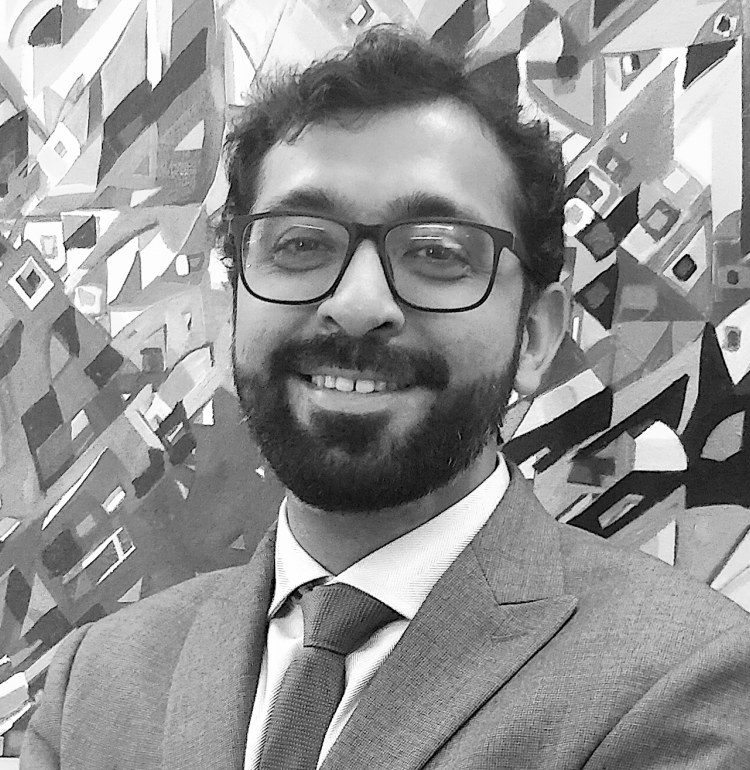
Priyank Hirani is currently consulting for The Rockefeller Foundation’s Asia Regional Office as the Asia Data & Technology Lead. His interests lie in understanding the AI for Social Good, Data for Development and Emerging Technologies landscape in Asia to bring the benefits of technology from the private sector to CSOs & governments. Most recently, he served as the Program Director for University of Chicago and Tata Centre for Development’s Water-to-CloudCloud (W2C) initiative, leading a team of scientists & technologists to collect, curate and disseminate data on water quality in Indian rivers through an open-access digital platform. Working closely with academia, governments, think tanks, industries, and civil society, he believes in democratizing access to data through multi-stakeholder platforms.
Priyank received the 2017 Changemaker’s Young Achiever Award from Quality Council of India for his contribution to nation-building. He was nominated to attend the first United Nations Youth Climate Summit in New York and was part of the founding cohort of UNLEASH, a global innovation lab to engage youth to address SDGs and has contributed to knowledge dissemination on climate change and environment by participating in various international conferences. Priyank received his BEng in Electronics from BITS Pilani (India), MSc in Circuit Design from Imperial College London and has worked with University College London’s space research program. He is also a Young India Fellow.
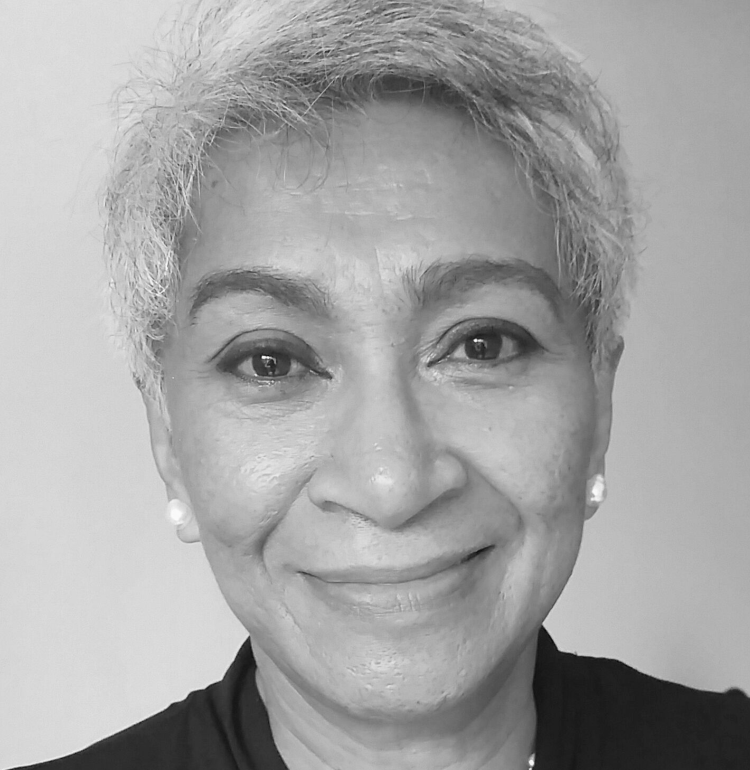
Mazlan obtained a Ph.D. in Astrophysics from the University of Otago, New Zealand, and became a lecturer at the Universiti Kebangsaan Malaysia (UKM) in 1981. Seconded to the Prime Minister’s Department in 1990 to set up and head the Planetarium Division, which subsequently became the Space Science Studies Division in 1993. Appointed by UKM as Professor of Astrophysics in 1994. Appointed Director of the United Nations Office for Outer Space Affairs (UNOOSA) in Vienna, Austria in 1999. Returned to Malaysia to become the founding Director General of the National Space Agency (ANGKASA) beginning July 2002. In this capacity, she established the National Observatory in Langkawi and National Space Centre in Selangor. She headed the National Angkasawan (Astronaut) Programme which saw the launch of the first Malaysian to the International Space Station in 2007. She was responsible for the launch of Malaysia Remote Sensing Satellites: TiungSAT and RazakSAT. She attended the Advanced Management Programme (AMP169) at Harvard Business School in 2005. Resumed post as Director of UNOOSA in December 2007 upon retirement from Malaysian Civil Service. Appointed Deputy Director-General of the United Nations Office at Vienna (UNOV) in June 2009. Retired from the United Nations in Dec 2013. Appointed Project Director, Mega Science 3.0 at Academy of Sciences Malaysia (ASM) 2014 -2016. Became Professor Emeritus at UKM in 2015 and was a Fulbright Scholar at the Space Policy Institute of George Washington University 2015-2016. Elected Senior Fellow of ASM in 2016. She is co-chairing the ASM Malaysia Foresight 2050 initiative. Currently the Director of the International Science Council (ISC) Regional Office for Asia and the Pacific (ROAP) since 2017.

Ms. Yoonee Jeong is a public policy professional with hybrid experience comprising consulting, international development, and digital technology and has been with Telenor Group since 2018.
Yoonee has over six years of consulting experience with the World Bank and TRPC, a consulting firm specializing in digital policy advisory and economics analysis. At the World Bank, She worked on two seminal digital economy advisory projects on Malaysia and South East Asia as a senior consultant and led the secretariat team of the Global Infrastructure Connectivity Alliance, a G-20 initiative. As the Director of Research and Consulting at TRPC, Yoonee lead client engagement, policy research projects, and government outreach on digital infrastructure, digital trade, financial inclusion, data privacy, and cloud computing.
Yoonee built her career as an international development professional with Oxfam Great Britain in Ethiopia and APWINC, an international NGO promoting women digital entrepreneurship in Korea. She later worked for the regional institute of the United Nations ESCAP, spearheading ICT policy capacity building programs for governments in over 20 countries in Asia and the Pacific.
Yoonee obtained her Master’s degree in International Development Policy from Duke University as a FLAS Scholar and her bachelor’s from the Ateneo de Manila University of the Philippines. She plays ultimate frisbee competitively and serves on the Board of Directors of the World Flying Disc Federation (WFDF). A Korean native, she spent her youth in the Philippines and has lived in Singapore with her husband and three children since 2013.
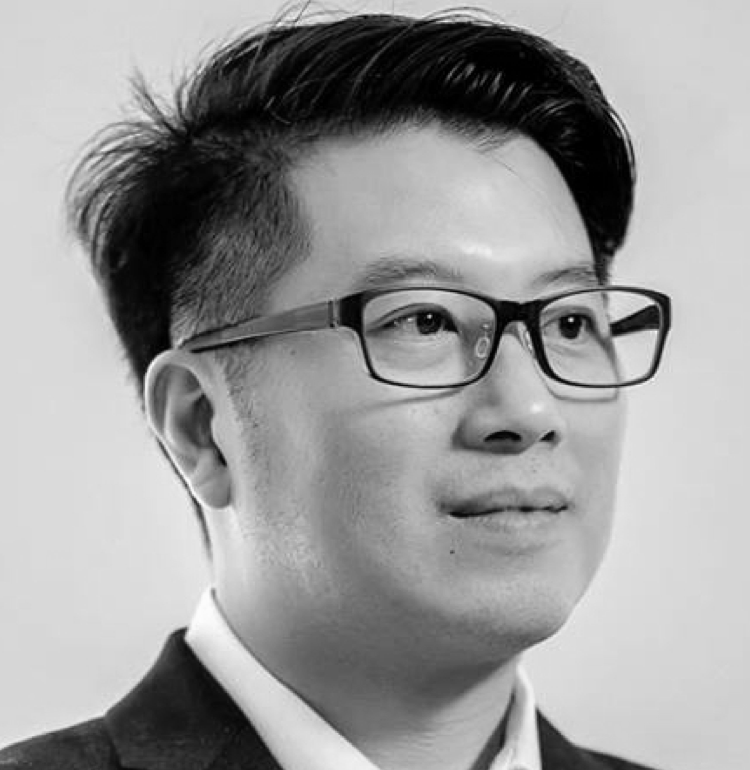
Dr. Pun-Arj Chairatana (PAC) – the Executive Director of National Innovation Agency (NIA), Thailand – has been recognized as the country’s pioneer in the fields of foresight and innovation management. With comprehensive education background in Physics, Economics, Innovation Management and Technology Foresight, PAC engaged with various strategic projects in multi areas, ranges from academia to national policy development. With decades of experience, he involved in several international and national research projects from both private and public sectors, for example managing “Trendnovation Southeast”, the horizon scanning project under the Searchlight Network of the Rockefeller Foundation, and designing “social innovation system” and policy for the Thai social economy. Also, he was the Founder and managing director of NOVISCAPE Consulting Group (NCG), the foresight and innovation- specialized company based in Bangkok, and involved with various regional scenario building and future exercises since the late 1990s. Recently, as the program leader of STARTUP THAILAND – a national startup promotion platform by the Ministry of Higher Education Science Research and Innovation (MHESI) – he has brought national awareness on startup to the public and established a national-level policy to make Thailand as an open area for startup not only in Asia region but also for worldwide.
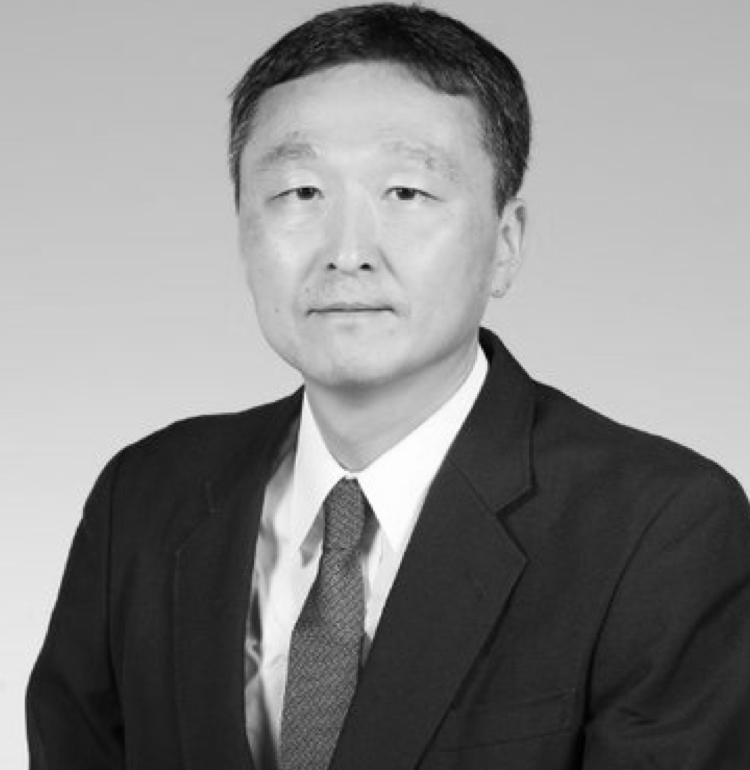
Masaru YARIME is an Associate Professor at the Division of Public Policy in the Hong Kong University of Science and Technology. He also has appointments as Honorary Associate Professor at the Department of Science, Technology, Engineering and Public Policy (STEaPP) in University College London and Visiting Associate Professor at the Graduate School of Public Policy (GraSPP) in the University of Tokyo. His research interests center around science, technology, and innovation policy for energy, environment, and sustainability. He has been engaged in investigating the interactions between technology and institutions in creating sustainability innovation, particularly exploring policy and governance challenges in data-driven innovation, including AI, IoT, and smart cities. He received B.Eng. in Chemical Engineering from the University of Tokyo, M.S. in Chemical Engineering from the California Institute of Technology, and Ph.D. in Economics and Policy Studies of Innovation and Technological Change from Maastricht University in the Netherlands. His previous appointments include Senior Research Fellow at the National Institute of Science and Technology Policy and Visiting Scholar at the Japan International Cooperation Agency Research (JICA) Institute.
Personal Web Page: http://yarime.net/
November 5, 2020
How can government officials resolve the different investment dilemmas that arise when building national capabilities on AI?

Professor Mark Findlay is a Professor of Law at Singapore Management University, and Director of its Centre for AI and Data Governance, where he is a Professorial Research Fellow. In addition, he has honorary Chairs at the Australian National University, the University of Edinburgh and the University of New South Wales, as well as being an Honorary Senior Research Fellow at the British Institute for International and Comparative Law, and an Honorary Fellow of the Law School, University of Edinburgh.
Professor Findlay is the author of 29 monographs and collections and over 150 refereed articles and book chapters. He has held Chairs in Australia, Hong Kong, Singapore, England and Ireland. For over 20 years he was at the University of Sydney as the Chair in Criminal Justice, the Director of the Institute of Criminology. Most recent publications include ‘Law’s Regulatory Relevance’ and ‘Principled International Criminal Justice: Lessons from tort law’. Currently, he is working on COVID-19 regulatory issues represented in the following discussion papers. More material by Professor Findlay is available on the CAIDG website.

Steve is a technology-industry leader with a wide range of experience in software, hardware, consulting and managed services. As a passionate advocate for constructive debate about technology and the future of humanity, Leonard is a regular speaker at United Nations Development Program and United Nations Economic and Social Commission for Asia and the Pacific events. He is also a frequent on-stage and on-air contributor at a wide range of technology events, hosted by leading media groups including WSJ, Forbes, CNBC, Bloomberg, BBC, and The Economist.
In his most recent role as Founding CEO of SGInnovate – a private limited company wholly-owned by the Singapore Government – Steve created an organization whose mission is to build investable early-stage deep tech companies. Capitalizing on the top-ranked education system and world-class scientific research for which Singapore has gained a global reputation. He and his team worked with local and international partners, including universities, venture capitalists, and major corporations to help technical founders start and scale investable early-stage deep tech technology companies based on scientific research. SGInnovate has played a role in building nearly 90 deep tech startups and formed a community of 33,000 members during Mr. Leonard’s tenure.
Prior to his role as the CEO of SGInnovate, Steve served three years as the Executive Deputy Chairman of the Infocomm Development Authority (IDA), a government statutory board under the purview of Singapore’s Ministry of Communications and Information. In that role, he had executive responsibility at the national level for various aspects of the information technology and telecommunications industries in Singapore.
Prior to joining Singapore Government in 2013, he held executive leadership roles in Europe and Asia for two decades with several global technology companies including EMC, Symantec and EDS with a focus on growth, market share and profitability.
Steve serves on the advisory boards of several universities and organizations and also serves as an Independent Non-Executive Director at Singapore Post Ltd (SingPost), an international leader in e-commerce logistics and services, and chairs their Business Risk and Technology Committee. He is also an alum of a two-year Executive Education program with MIT Sloan School around building a national entrepreneurship ecosystem.
Although a proud US citizen, having lived and worked outside the US for nearly 30 years, Steve considers himself a member of the larger global community.
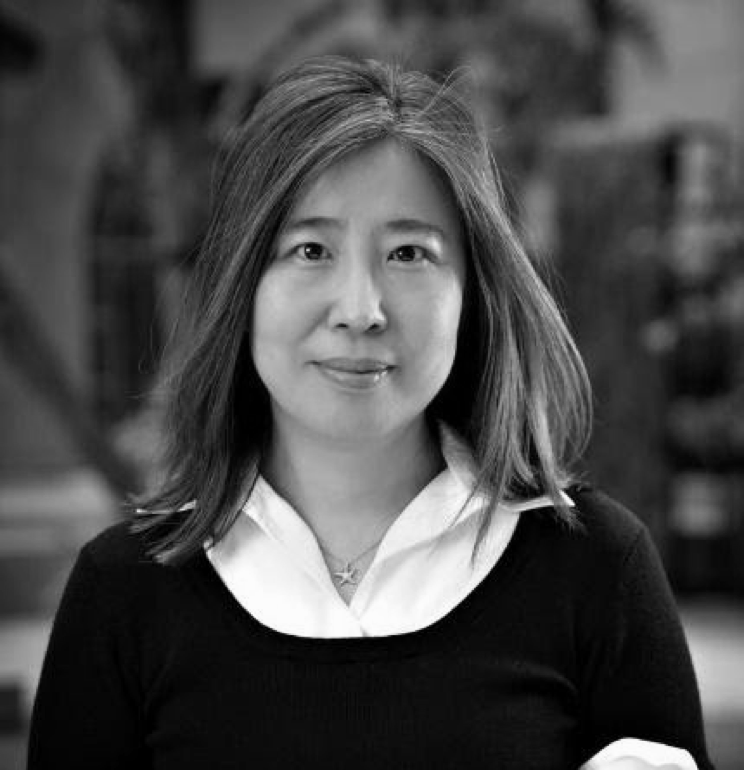
Cyn-Young Park is Director of the Regional Cooperation and Integration Division in the Economics Research and Regional Cooperation Department of the Asian
Development Bank (ADB). In her current capacity, she manages a team of economists to examine economic and policy issues related to regional cooperation and integration (RCI) and develop strategies and approaches to support RCI. During her progressive career within ADB, she has been a main author and contributor to ADB’s major publications including Asian Development Outlook (ADB’s flagship publication), Asian Economic Integration Report, Asia Capital Markets Monitor, Asia Economic Monitor, Asia Bond Monitor, and ADB Country Diagnostic Study Series. She has also participated in various global and regional forums including the G20 Development Working Group, Association of Southeast Asian Nations (ASEAN), ASEAN+3, Asia-Pacific Economic Cooperation (APEC), and Asia-Europe Meeting (ASEM). She has written and lectured extensively about the Asian economy and financial markets. Her work has been published in peer-reviewed academic journals including the Journal of Banking and Finance, the Journal of Financial Stability, the Journal of Futures Markets, the Review of Income and Wealth, and the World Economy.
Prior to joining the ADB, she served as Economist (1999-2002) at the Organisation for Economic Cooperation and Development (OECD), where she contributed to the OECD Economic Outlook. She received her Ph.D. in Economics from Columbia University. She holds a bachelor degree in International Economics from Seoul
National University.

As Director of the Data Ecosystem Development Division, Dr Karl leads MDEC’s efforts in building a thriving national data ecosystem that leverage on the power of data for value creation, innovation and new sources of growth.
The Data Ecosystem endeavour includes driving the impact of data technologies such as the Internet of Things (IoT), Big Data Analytics (BDA) and Artificial Intelligence (AI) via a two-pronged strategy of growing the local supply of such solutions via industry development programs and while carrying out the digital transformation on the demand side. Dr Karl is instrumental in the development of the National Big Data Analytics Framework in 2014 and currently driving the development of the National Artificial Intelligence Framework. He also chairs the National Data Sharing Policy Taskforce.
He holds a Bachelor degree in Engineering from The University of Birmingham, United Kingdom and MBA with Distinction and Doctor of Business Degrees from Charles Sturt University, Australia. He recently completed The Oxford AI Program from Said Business School of the University of Oxford. He has also attended executive programs from Harvard Business School and Carnegie Melon University. He is also a registered Professional Engineer. He sits in the advisory board of several universities in Malaysia and has served as a judge in international Entrepreneurship and Innovation awards including EY Entrepreneur of the Year Malaysia from 2012-2016.
November 12, 2020
What are some key policy strategies to increase the accessibility of AI inputs and ethically use AI to tackle social development issues?

Professor Mark Findlay is a Professor of Law at Singapore Management University, and Director of its Centre for AI and Data Governance, where he is a Professorial Research Fellow. In addition, he has honorary Chairs at the Australian National University, the University of Edinburgh and the University of New South Wales, as well as being an Honorary Senior Research Fellow at the British Institute for International and Comparative Law, and an Honorary Fellow of the Law School, University of Edinburgh.
Professor Findlay is the author of 29 monographs and collections and over 150 refereed articles and book chapters. He has held Chairs in Australia, Hong Kong, Singapore, England and Ireland. For over 20 years he was at the University of Sydney as the Chair in Criminal Justice, the Director of the Institute of Criminology. Most recent publications include ‘Law’s Regulatory Relevance’ and ‘Principled International Criminal Justice: Lessons from tort law’. Currently, he is working on COVID-19 regulatory issues represented in the following discussion papers. More material by Professor Findlay is available on the CAIDG website.

Priyank Hirani is currently consulting for The Rockefeller Foundation’s Asia Regional Office as the Asia Data & Technology Lead. His interests lie in understanding the AI for Social Good, Data for Development and Emerging Technologies landscape in Asia to bring the benefits of technology from the private sector to CSOs & governments. Most recently, he served as the Program Director for University of Chicago and Tata Centre for Development’s Water-to-CloudCloud (W2C) initiative, leading a team of scientists & technologists to collect, curate and disseminate data on water quality in Indian rivers through an open-access digital platform. Working closely with academia, governments, think tanks, industries, and civil society, he believes in democratizing access to data through multi-stakeholder platforms.
Priyank received the 2017 Changemaker’s Young Achiever Award from Quality Council of India for his contribution to nation-building. He was nominated to attend the first United Nations Youth Climate Summit in New York and was part of the founding cohort of UNLEASH, a global innovation lab to engage youth to address SDGs and has contributed to knowledge dissemination on climate change and environment by participating in various international conferences. Priyank received his BEng in Electronics from BITS Pilani (India), MSc in Circuit Design from Imperial College London and has worked with University College London’s space research program. He is also a Young India Fellow.

Jonathan Wong is the Chief of Technology and Innovation at the United Nations Economic and Social Commission for Asia and the Pacific (ESCAP). He joined ESCAP from the UK Department for International Development (DFID), where he was the inaugural Head of Innovation. He has led the establishment of several high-profile innovation initiatives including the Global Innovation Fund, a partnership between the Omidyar Network and the governments of the US, UK, Sweden, Australia and South Africa.
He has extensive experience in social innovation and entrepreneurship, impact investing and technology. He also has substantial policy expertise on these agendas, having advised governments across Europe, Africa, Asia and the Pacific.
Before joining DFID, he was a founding partner of a technology and innovation venture-capital fund and supported the establishment of the UK NHS Institute for Innovation and Improvement.
Mr Wong has also served on APEC’s E-commerce Business Council, was awarded a
Rockefeller Foundation Policy Fellowship, and is a World Economic Forum Schwab Fellow.

Pascale Fung is a Professor at the Department of Electronic & Computer Engineering and Department of Computer Science & Engineering at The Hong Kong University of Science & Technology (HKUST), and a visiting professor at the Central Academy of Fine Arts in Beijing. She is an elected Fellow of the Institute of Electrical and Electronic Engineers (IEEE) for her “contributions to human-machine interactions”, and an elected Fellow of the International Speech Communication Association for “fundamental contributions to the interdisciplinary area of spoken language human-machine interactions”. She is the Director of HKUST Centre for AI Research (CAiRE), an interdisciplinary research center on top of all four schools at HKUST. She co-founded the Human Language Technology Center (HLTC). She is an affiliated faculty with the Robotics Institute and the Big Data Institute at HKUST. She is the founding chair of the Women Faculty Association at HKUST. She is an expert on the Global Future Council, a think tank for the World Economic Forum. She represents HKUST on Partnership on AI to Benefit People and Society. She is on the Board of Governors of the IEEE Signal Processing Society. She is a member of the IEEE Working Group to develop an IEEE standard – Recommended Practice for Organizational Governance of Artificial Intelligence. Her research team has won several best and outstanding paper awards at ACL, ACL and NeurIPS workshops.

Steve is a technology-industry leader with a wide range of experience in software, hardware, consulting and managed services. As a passionate advocate for constructive debate about technology and the future of humanity, Leonard is a regular speaker at United Nations Development Program and United Nations Economic and Social Commission for Asia and the Pacific events. He is also a frequent on-stage and on-air contributor at a wide range of technology events, hosted by leading media groups including WSJ, Forbes, CNBC, Bloomberg, BBC, and The Economist.
In his most recent role as Founding CEO of SGInnovate – a private limited company wholly-owned by the Singapore Government – Steve created an organization whose mission is to build investable early-stage deep tech companies. Capitalizing on the top-ranked education system and world-class scientific research for which Singapore has gained a global reputation. He and his team worked with local and international partners, including universities, venture capitalists, and major corporations to help technical founders start and scale investable early-stage deep tech technology companies based on scientific research. SGInnovate has played a role in building nearly 90 deep tech startups and formed a community of 33,000 members during Mr. Leonard’s tenure.
Prior to his role as the CEO of SGInnovate, Steve served three years as the Executive Deputy Chairman of the Infocomm Development Authority (IDA), a government statutory board under the purview of Singapore’s Ministry of Communications and Information. In that role, he had executive responsibility at the national level for various aspects of the information technology and telecommunications industries in Singapore.
Prior to joining Singapore Government in 2013, he held executive leadership roles in Europe and Asia for two decades with several global technology companies including EMC, Symantec and EDS with a focus on growth, market share and profitability.
Steve serves on the advisory boards of several universities and organizations and also serves as an Independent Non-Executive Director at Singapore Post Ltd (SingPost), an international leader in e-commerce logistics and services, and chairs their Business Risk and Technology Committee. He is also an alum of a two-year Executive Education program with MIT Sloan School around building a national entrepreneurship ecosystem.
Although a proud US citizen, having lived and worked outside the US for nearly 30 years, Steve considers himself a member of the larger global community.
November 17, 2020
How can we build the institutions and processes necessary for bringing all stakeholders into AI governance?

A renowned researcher in Computer Vision and Artificial Intelligence, Dr P. Anandan’s career spans over 30 years in academia and industry in the US and India. He was the Founder and Managing Director of Microsoft Research India, and professor of Computer Science at Yale University. He is a distinguished alumnus of IIT Madras, the University of Massachusetts, and a member of the Board of Governors of IIT Madras.

David is the Senior Advisor for Data and Artificial Intelligence at UnionBank Philippines.
Concurrently David is an external advisor to Singapore’s Corrupt Investigation Practices Bureau (CPIB) in the capacity of Senior Advisor (Artificial Intelligence) and to Singapore’s Central Provident Fund Board (CPF) in the capacity of Senior Advisor (Data Science).
Prior to his current roles, David was Monetary Authority of Singapore (MAS) first appointed Chief Data Officer and Head of Data Analytics Group reporting to the agency Deputy Managing Director for Financial Supervision and subsequently Special Advisor (Artificial Intelligence) reporting to Deputy Managing Director for Markets and Development. In these roles, he led the development of the AI strategy both for MAS and Singapore’s financial sector as well as driving efforts in promoting open cross-border data flows.
David has extensive exposure and experience in both industry and academia and he has consistently applied advanced technology with an analytical mindset to shape and deliver new innovation. David holds a PhD in Computer Science in the field of Machine Learning from the University of Southampton and graduated from Royal Holloway, the University of London with First Class Honors B.Sc. in Computer Science and Artificial Intelligence. Out in the “field”, David is more likely to consider himself a data artist instead of a pure data scientist.
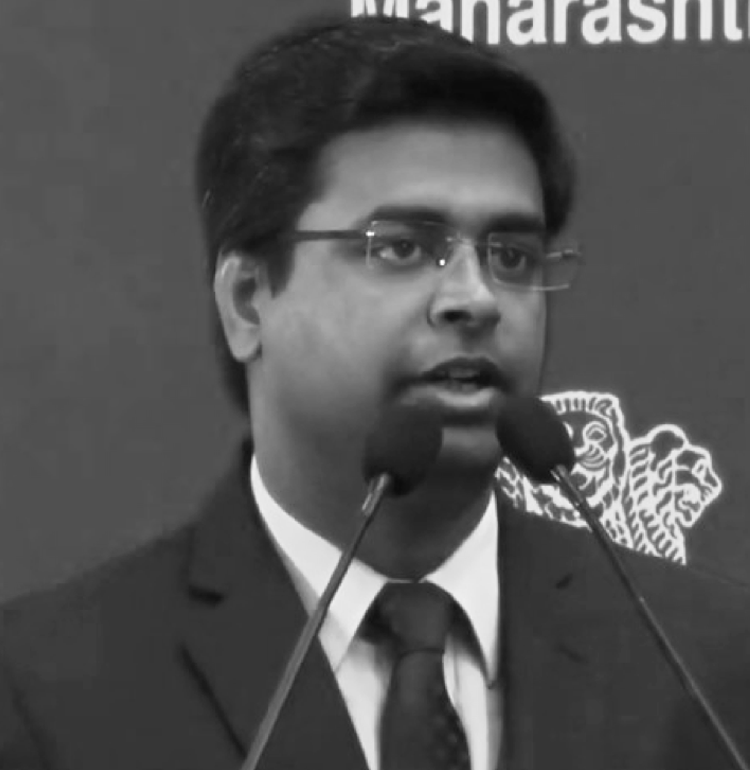
Punit leads technology governance projects in the area of artificial intelligence, Blockchain and data at the World Economic Forum. He works with governments, enterprises and civic societies to formulate policy frameworks and technology standards for an accelerated adoption of the Fourth Industrial Revolution technologies. He has earlier been part of the national team at NITI Aayog, Government of India’s premier think-tank, which developed India’s national strategy for Artificial Intelligence and Blockchain. He is a management graduate from the Indian Institute of Management Lucknow.
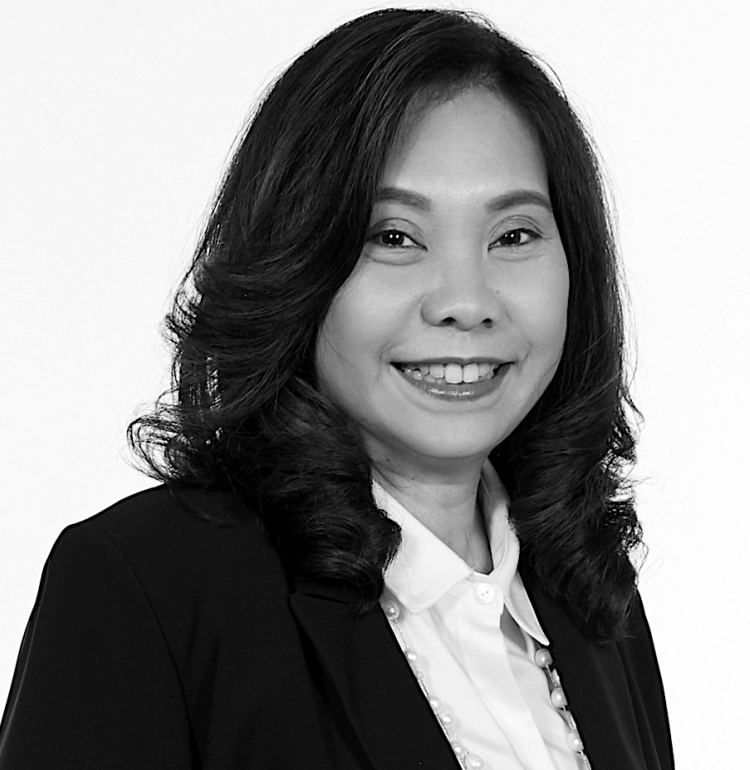
Kanchana Wanichkorn has joined the Office of Higher Education, Science,
Research and Innovation Policy Council (NXPO) as a Vice President since established in May 2019. She has led a team of researchers and analysts to formulate of the first national policy framework for higher education, science, research and innovation, endorsed by the Policy Council and the Cabinet in August 2019. She is currently working on a number of policy initiatives including R&D strategy in frontier technologies, STI strategy for bio-circular-green economy, research & innovation strategy for AI economy. Kanchana also currently serves as a member of the sub-committee on science, research and innovation of the Senate.
Prior to joining NXPO, Kanchana was at the National Science, Technology and
Innovation Policy Office from 2008 to 2019 where she held her last position as the
Deputy Secretary General in charge of the directorate of strategic foresight and policy planning. Her works include the design and implementation of science, technology and innovation (STI) strategies to enhance national competitiveness. Kanchana has involved in the development of many national policies, including the national STI policy of Thailand 2012 – 2021, national research and innovation strategy, talent mobility and management policy, STI international co-operation and science diplomacy strategy, ASEAN Plan of Action on STI 2016-2025, the reform of national research and innovation system, and the formation of the new ministry of higher education, science, research and innovation.
Prior to joining the National STI Policy Office, Kanchana was a policy researcher
at the National Electronics and Computer Technology Center (NECTEC), National
Science and Technology Development Agency (NSTDA) from 2002 to 2008. Kanchana received her PhD in Engineering & Public Policy and MS in Electrical & Computer Engineering from Carnegie Mellon University, MA in Applied Economics from the University of Michigan and BS (Distinction) in Mechanical Engineering from University of Minnesota, USA. She was awarded the Thai Government Scholarship from BS to PhD.
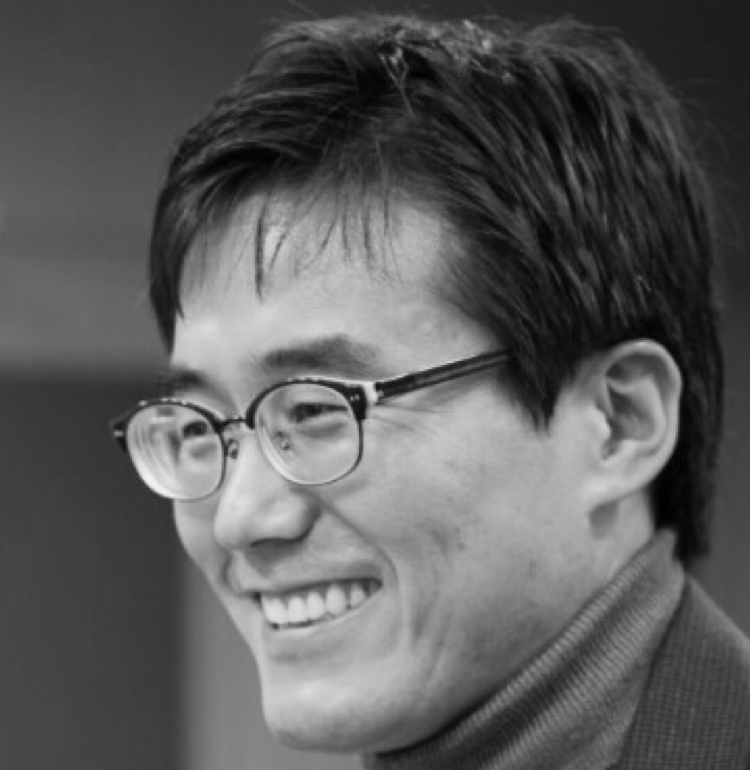
Professor Moon is Dean of the College of Social Sciences and Professor of the Department of Public Administration as well as Director of the Institute for Future Government at Yonsei University. His research interests include digital government, public management, and comparative public administration. He is an elected Fellow of National Academy of Public Administration (NAPA). He served as International Director of American Society for Public Administration and Vice President of the Korean Association of Public Administration. His work on e-government was selected as one of the most influential 75 pieces published in Public Administration Review which celebrates the 75th anniversary. He was the recipient of Mosher Award for the best article published in Public Administration Review and the Peter Boorsma Award for International Scholar in 2009. Recently, he was selected as a recipient of the Highest Research Award of Yonsei University in 2019 and the Stone Award of the American Society for Public Administration in 2020. He is also selected as one of world’s 100 most influential people in Digital Government 2018 and 2019 consecutively by Apolitical which is a London-based leading nonprofit organization.
November 19, 2020
How can we build from and spread responsible development norms and codes of practice to guide those developing and utilizing AI?

Toni Erskine is Professor of International Politics and Director of the Coral Bell School of Asia Pacific Affairs at The Australian National University (ANU). She is also Editor of International Theory: A Journal of International Politics, Law, and Philosophy, Associate Fellow of the Leverhulme Centre for the Future of Intelligence at the University of Cambridge, and one of the Chief Investigators on the ‘Humanising Machine Intelligence’ Grand Challenge Research Project at ANU. She is Chair of the 2020 Oceanic Conference in International Studies. Her research interests include the impact of artificial intelligence on responsibilities of restraint in war; how the use of AI-enabled automated weapons and decision support systems in war affect the role perceptions of the human and institutional agents who rely on them; the moral status of artificially intelligent entities; the moral agency and responsibility of formal organisations (such as states, transnational corporations, and intergovernmental organisations) in international politics; informal associations and imperatives for joint action in the context of global crises; cosmopolitan theories and their critics; the ethics of war; and, the responsibility to protect populations from mass atrocity crimes (R2P).
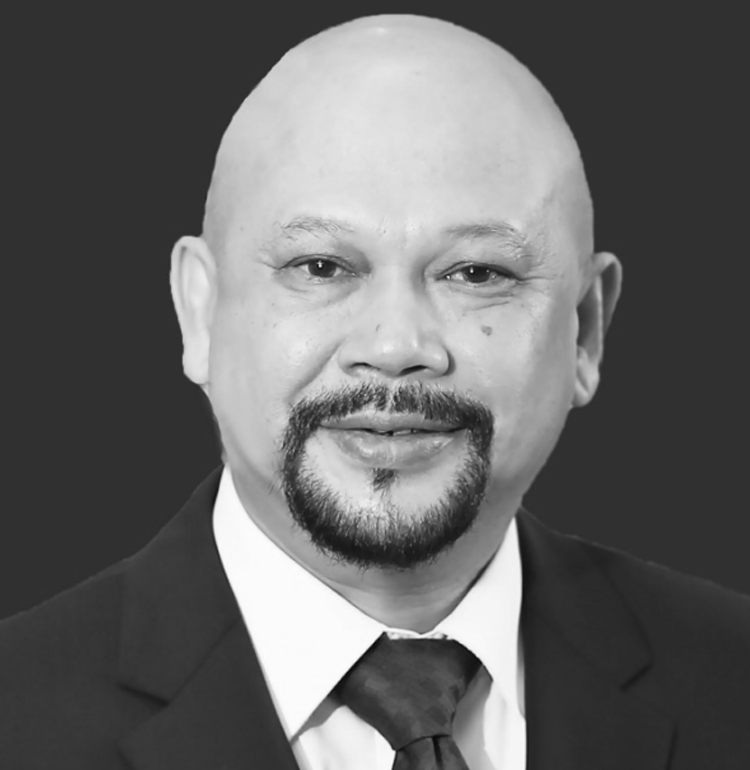
Dr Hammam Riza has extensive 32-years’ experience in ICT, with an emphasis on artificial intelligence, enterprise information system, cybersecurity, broadband
and mobile communication with in-depth experience in research, development, engineering and operation of IT system and network.
Currently, he holds a position as Deputy Chairman for Natural Resource
Development Technology at the Agency for the Assessment and Application of Technology – BPPT, Government of Indonesia. He was the Deputy Chairman BPPT for Information Technology, Energy and Material, concurrently as executive Chief Information Officer (CIO). He was the Director of ICT Center and previously was Director of Science and Technology Information Network (IPTEKnet) BPPT, a
government internet service provider and held various positions in major Internet start-up companies as professional executive consultant.
He holds Doctor of Engineering degree in Electrical Engineering (cum laude), Master of Science in Computer Science and Bachelor in Electrical Engineering, majoring Electronics and Control System.

As Director of Responsible Innovation at Facebook, Zvika supports the company’s product teams early in the product development process of new technologies and throughout the product development lifecycle to anticipate and minimize potential harm and ensure we are building responsibly. He also oversees the development of training and educational resources focused on best practices and responsible implementation.
He served on the Executive Committee of the World Economic Forum, where he launched Centres for the Fourth Industrial Revolution in 13 countries, working with governments, companies, civil society, and stakeholders from around the world to accelerate the adoption of new technologies in the global public interest, including the co-design, piloting, and adoption of over 20 forward-leaning policies and protocols globally.
He served as the first-ever U.S. Department of State Representative to Silicon Valley and Senior Advisor for Technology and Innovation. He worked with the technology and innovation sectors on tackling global challenges, leading initiatives on providing assistance to refugees, tracking nuclear weapons, expanding access to clean energy, and countering violent extremism. He also helped the State Department plan for the international impacts of emerging technology trends, such as blockchains, gene editing, and artificial intelligence.
He also created and led the Department’s Strategy Lab, an innovation hub that utilizes design thinking, strategic foresight, and visual facilitation to convene diverse stakeholders and generate innovative solutions to complex international challenges.
He was a Strategist in the Office of the Secretary of Defense, where his portfolios included climate change, Middle East strategy, policy innovation, and emerging technology, and for which he received the Secretary of Defense Award for Excellence. He contributed to the 2014 Quadrennial Defense Review and was one of the lead authors of the Department’s Climate Change Adaptation Roadmap. He began his career in the Pentagon as an advisor to then-Deputy Secretary of Defense Ashton Carter. He previously served as Senior Vice President of the Center for Middle East Peace and created the “Is Peace Possible?” interactive website.
Before joining the government, Krieger spent almost a decade as a journalist, including as a foreign policy correspondent at The Atlantic, editor and writer at The New Republic, and Middle East correspondent for Newsweek based in Egypt and Lebanon and covering most of the Arab world. His work has also appeared in The Wall Street Journal, Foreign Affairs, Guardian, Slate, New York, and various other publications, and he has appeared as an analyst on NBC News, CNN, and Fox News.
He has received fellowships to study topics including the Muslim Brotherhood in Jordan, the Kifaya reform movement in Egypt, public health in Bombay slums, religious identity in Kashmir, historical memory in Palestinian refugee camps, and the role of religion in Lebanese politics. He has also reported from such places as Iraq, Saudi Arabia, Turkey, Dubai, Sri Lanka, Japan, and Korea. His writings have earned him awards from the Overseas Press Club and Scripps Howard Foundation.
He has taught “Hacking for Diplomacy,” “Designing for Refugees,” and “Long Distance Design” at Stanford, “Designing Technology to Counter Violent Extremism” at UC Berkeley, and the inaugural Institute for Design + Public Policy at the Rhode Island School of Design.
He has been a fellow at the Royal Society for the Encouragement of Arts, Manufactures and Commerce (RSA), a Visiting Fellow at the National Defense University, a certified Design Thinking instructor by the LUMA Institute, a fellow at the Truman National Security Project, and a member of the Aspen Institute’s Socrates Society. He has a bachelor’s degree from Yale University and studied Arabic at the American University in Cairo.
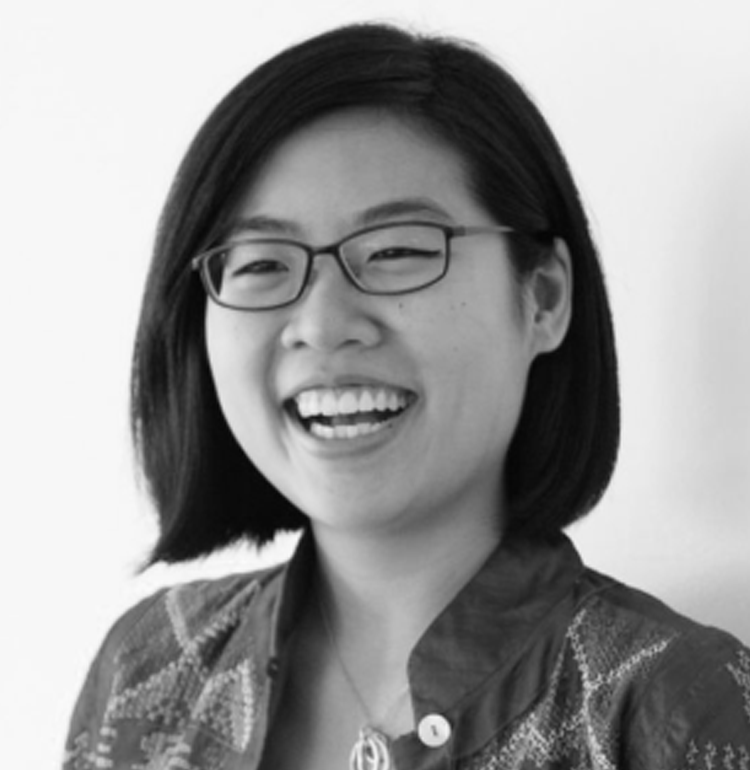
Stephanie Sy is the CEO of Thinking Machines, a leading data technology consultancy with offices in Manila and Singapore. Her company has published original research in artificial intelligence at top industry conferences such as the International Conference on Machine Learning. They are part of the UNICEF Innovation Fund for their work building open-source artificial intelligence models to help address poverty and development issues. She’s on the 2018 Forbes Asia 30 Under 30 List and is an Asia Society Young Leader. She is on the AI Advisory Board of the Philippine Department of Science and Technology.
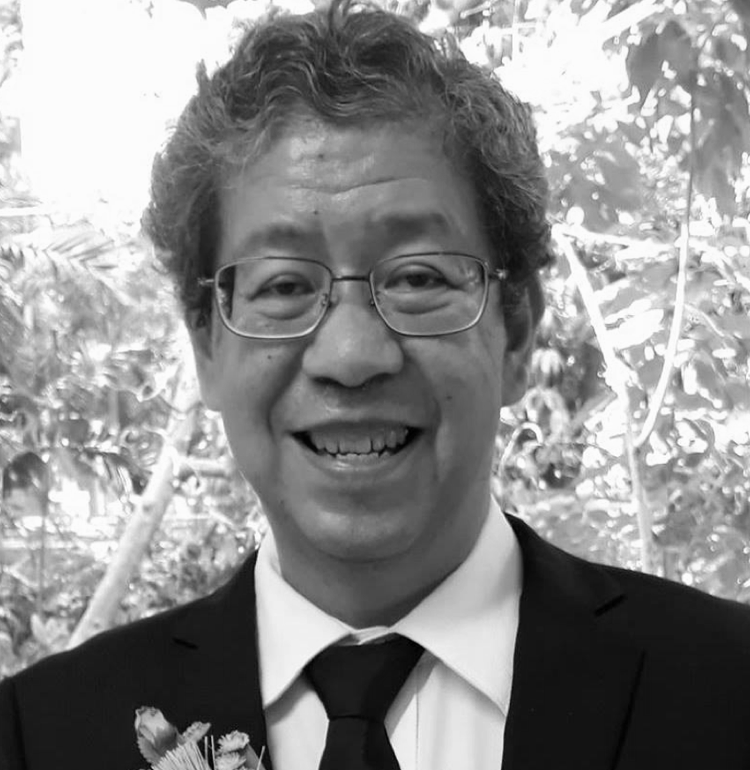
Soraj Hongladarom is Professor of Philosophy and Director of the Center for Ethics of Science and Technology at Chulalongkorn University in Bangkok, Thailand. He has published books and articles on such diverse issues as bioethics, computer ethics, and the roles that science and technology play in the culture of developing countries. His concern is mainly on how science and technology can be integrated into the life-world of the people in the so-called Third World countries, and what kind of ethical considerations can be obtained from such relation. A large part of this question concerns how information technology is integrated in the lifeworld of the Thai people, and especially how such integration is expressed in the use of information technology in education. His most recent book is The Ethics of AI and Robotics: A Buddhist Viewpoint, forthcoming this year from Rowman & Littlefield. He is also the author of The Online Self and A Buddhist Theory of Privacy, both published by Springer. His articles have appeared in The Information Society, AI & Society, Philosophy in the Contemporary World, and Social Epistemology, among others.
November 26, 2020
What are the most essential means of creating institutions and processes that include all stakeholders in AI governance?
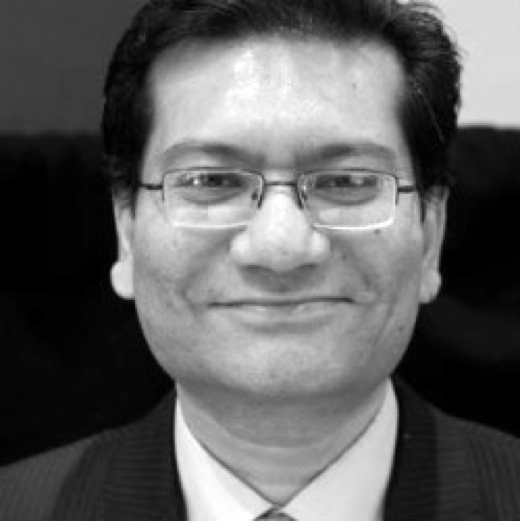
Anir Chowdhury is the Policy Advisor of the a2i Program of the ICT Division and the Cabinet Division of the Government of Bangladesh supported by the UNDP and Gates Foundation. In this capacity, he leads the formation of a whole-of-society innovation ecosystem in Bangladesh through massive technology deployment, extensive capacity development, integrated policy formulation, whole-of-government institutional reform, and an Innovation Fund. His work on innovation in public service has developed interesting and replicable models of service delivery decentralization, public-private partnerships, and transformation of a traditional bureaucracy into a forward-looking, citizen-centric service provider. He is a regular speaker in international conferences on public service innovation and reform, digital financial inclusion, civil registration and digital identity management, SDGs, youth and community empowerment, educational transformation, public-private partnerships, and South-South Cooperation.
He is a member of the Prime Minister’s National Digital Task Force, Education Minister’s National ICT in Education Task Force, UNESCAP Regional Steering Group for Civil Registration and Vital Statistics (CRVS), Co-Founder and Board Member of South-South Network for Public Service Innovation (SSN4PSI) and Co-Founder of South-Asia Civil Registration Network (CR8). He co-founded several software and service companies and non-profit organizations in the US and Bangladesh. Anir graduated magna cum laude in Computer Science and Applied
Mathematics from Brown University and did post-graduate work on management, marketing, and education reform in Harvard, Columbia, and Boston Universities.

A renowned researcher in Computer Vision and Artificial Intelligence, Dr P. Anandan’s career spans over 30 years in academia and industry in the US and India. He was the Founder and Managing Director of Microsoft Research India, and professor of Computer Science at Yale University. He is a distinguished alumnus of IIT Madras, the University of Massachusetts, and a member of the Board of Governors of IIT Madras.

Toni Erskine is Professor of International Politics and Director of the Coral Bell School of Asia Pacific Affairs at The Australian National University (ANU). She is also Editor of International Theory: A Journal of International Politics, Law, and Philosophy, Associate Fellow of the Leverhulme Centre for the Future of Intelligence at the University of Cambridge, and one of the Chief Investigators on the ‘Humanising Machine Intelligence’ Grand Challenge Research Project at ANU. She is Chair of the 2020 Oceanic Conference in International Studies. Her research interests include the impact of artificial intelligence on responsibilities of restraint in war; how the use of AI-enabled automated weapons and decision support systems in war affect the role perceptions of the human and institutional agents who rely on them; the moral status of artificially intelligent entities; the moral agency and responsibility of formal organisations (such as states, transnational corporations, and intergovernmental organisations) in international politics; informal associations and imperatives for joint action in the context of global crises; cosmopolitan theories and their critics; the ethics of war; and, the responsibility to protect populations from mass atrocity crimes (R2P).

Professor Moon is Dean of the College of Social Sciences and Professor of the Department of Public Administration as well as Director of the Institute for Future Government at Yonsei University. His research interests include digital government, public management, and comparative public administration. He is an elected Fellow of National Academy of Public Administration (NAPA). He served as International Director of American Society for Public Administration and Vice President of the Korean Association of Public Administration. His work on e-government was selected as one of the most influential 75 pieces published in Public Administration Review which celebrates the 75th anniversary. He was the recipient of Mosher Award for the best article published in Public Administration Review and the Peter Boorsma Award for International Scholar in 2009. Recently, he was selected as a recipient of the Highest Research Award of Yonsei University in 2019 and the Stone Award of the American Society for Public Administration in 2020. He is also selected as one of world’s 100 most influential people in Digital Government 2018 and 2019 consecutively by Apolitical which is a London-based leading nonprofit organization.
APRU Disclaimer: The views, information, or opinions expressed during the AI For Social Good Summit, jointly developed by Google, UN ESCAP and APRU, in partnership with the Rockefeller Foundation are solely those of the individuals involved and do not necessarily represent those of The Association of Pacific Rim Universities (“APRU”) and its employees. APRU is not responsible and does not verify for accuracy any of the information contained in the series.